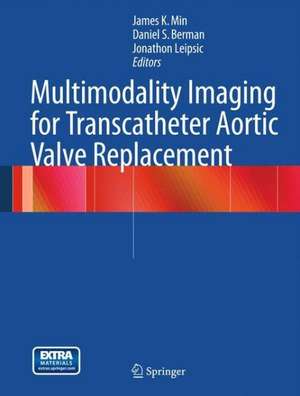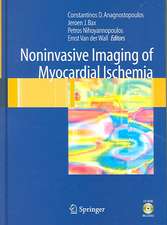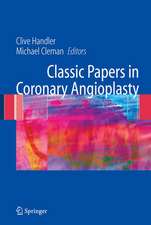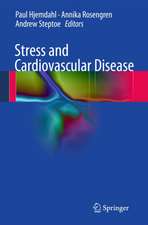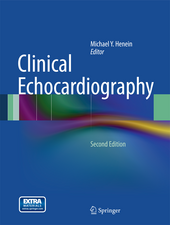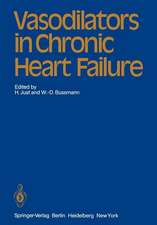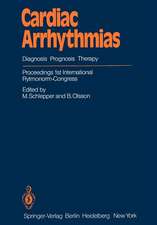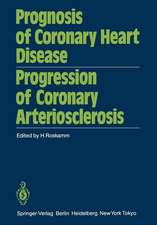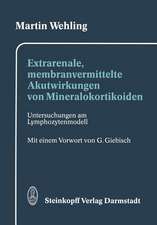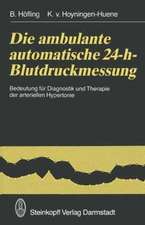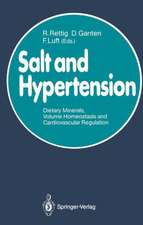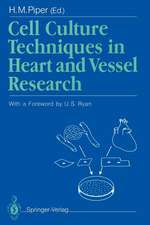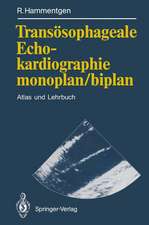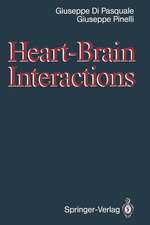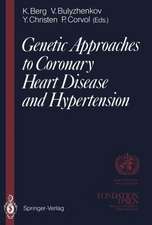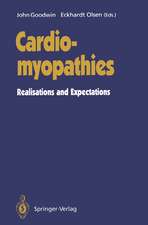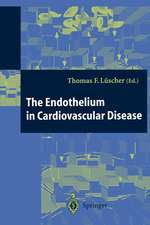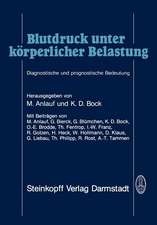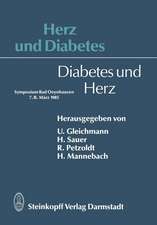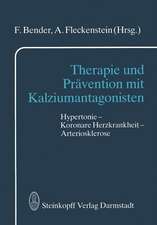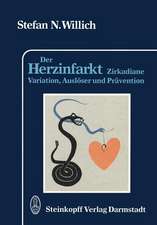Multimodality Imaging for Transcatheter Aortic Valve Replacement
Editat de James K. Min, Daniel S. Berman, Jonathon Leipsicen Limba Engleză Hardback – 24 oct 2013
| Toate formatele și edițiile | Preț | Express |
|---|---|---|
| Paperback (1) | 1006.74 lei 38-44 zile | |
| SPRINGER LONDON – 4 mai 2017 | 1006.74 lei 38-44 zile | |
| Hardback (1) | 1646.15 lei 3-5 săpt. | |
| SPRINGER LONDON – 24 oct 2013 | 1646.15 lei 3-5 săpt. |
Preț: 1646.15 lei
Preț vechi: 1732.78 lei
-5% Nou
Puncte Express: 2469
Preț estimativ în valută:
315.09€ • 342.37$ • 264.85£
315.09€ • 342.37$ • 264.85£
Carte disponibilă
Livrare economică 31 martie-14 aprilie
Preluare comenzi: 021 569.72.76
Specificații
ISBN-13: 9781447127970
ISBN-10: 1447127978
Pagini: 384
Ilustrații: XVI, 489 p. 301 illus., 241 illus. in color. With online files/update.
Dimensiuni: 210 x 279 x 27 mm
Greutate: 1.59 kg
Ediția:2014
Editura: SPRINGER LONDON
Colecția Springer
Locul publicării:London, United Kingdom
ISBN-10: 1447127978
Pagini: 384
Ilustrații: XVI, 489 p. 301 illus., 241 illus. in color. With online files/update.
Dimensiuni: 210 x 279 x 27 mm
Greutate: 1.59 kg
Ediția:2014
Editura: SPRINGER LONDON
Colecția Springer
Locul publicării:London, United Kingdom
Public țintă
Professional/practitionerCuprins
Why we need this book.- Transcatheter Aortic Valve Implantation: Review of Current Evidence.- Transcatheter Aortic Valve Replacement: Current Evidence From Large Multicenter Registries.- Transcatheter Aortic Valve Replacement: An Interventionalist's View.- Transcatheter Aortic Valve Replacement: A Surgeon’s View.- Transcatheter Aortic Valve Replacement (TAVR): A Clinician's Perspective Aortic Stenosis: Natural and Unnatural (Treated) History.- Transcatheter Aortic Valve Replacement: What the near-term future holds and what evidence is needed?.- Structural Design of Transcatheter Aortic Valves: General Concepts Related to Imaging.- Native and Prosthetic Valve Stenosis.- Low-Flow and Low Gradient Aortic Stenosis: Consideration in the Context of TAVR.- Pathologic Findings in Aortic Stenosis.- Echocardiographic Evaluation of Aortic Stenosis.- CT Evaluation of Aortic Stenosis.- MRI Evaluation of Aortic Stenosis.- Positron Emission Tomography Evaluation of Aortic Stenosis.- Coronary Artery Disease and Aortic Stenosis.- Common Cardiac Pathologies Associated with Aortic Stenosis.- Extravascular and Extracardiac Findings on MDCT for Transcatheter Aortic Valve Planning.- Transcatheter aortic valve replacement in patients with Chronic Kidney Disease: Pre-procedural assessment and procedural techniques to minimize risk for acute kidney injury.- Transcatheter Aortic Valve Replacement and Adverse Cerebrovascular Events.- Aortoiliofemoral assessment: MDCT.- Aortoiliofemoral assessment: MRA.- Aortoiliofemoral Angiography and IVUS.- Aortic Annular Geometry and Sizing: Echocardiography.- Aortic Annular Geometry and Sizing: CT.- Co-Axial Angle prediction for TAVR: CT.- Use of Multidetector Computed Tomography for Planning Transcatheter Aortic Valve Sizing.- Imaging for transfemoral versus transapical approaches to TAVR: What differences are important?.- Common Uses of Echocardiography for TAVR.- Angiography and rotational angiography for TAVR.- Fusion Imaging for TAVR.-Valve-in-valve for Transcatheter Aortic Valve Replacement: do imaging requirements change.- Intraprocedural Use of Echocardiography for TAVR.- Complications of TAVR.- Case-Based Examples of Complications Associated with Transcatheter Aortic Valve Replacement.- Structural and Hemodynamic Integrity of the Implanted TAVR Valve.- How can imaging pre-clinical models help us with TAVR?.- What future studies are needed for TAVR imaging?
Notă biografică
James K. Min, Daniel S. Berman and Jonathon Leipsic.
Textul de pe ultima copertă
Over the last decade, remarkable innovations in transcatheter technologies have led to the rapid development of minimally invasive therapies that have challenged conventional treatment. Amongst these, none is as remarkable as transcatheter aortic valve replacement (TAVR). An archetype of “bench-to-bedside” medicine, the origins of TAVR spanned the expertise and vision of clinicians, engineers, researchers and imagers.
With increasing numbers of TAVR procedures and large-scale trials demonstrating an unparalleled reduction in mortality for inoperable patients with severe aortic valvular disease, the theme underpinning the foundation of TAVR – that of a multidisciplinary approach to its development – persists in its practice. This approach brings together a diverse group of experts to optimize patient outcomes and this extends to the convergence of different types of imaging specialists and modalities to support preparation for and performance and follow-up of TAVR.
Multimodality Imaging for Transcatheter Aortic Valve Replacement assembles the very best authorities in the field to create the ultimate resource to address the imaging needs associated with TAVR. It provides the reader with a comprehensive understanding of the pathophysiology of aortic stenosis, the evidence supporting the use of TAVR, and an integrated approach to the indications, procedural aspects and pitfalls of imaging in TAVR. The reader will also gain an insight into which tests are optimal in specific situations and a step-wise method to harvest all the essential information provided with each modality. Thus, this book represents a key resource for all working in the field whether they be in training or practicing physicians, cardiac researchers, cardiac imagers, interventionalists, clinical cardiologists, cardiac surgeons, or any medical professional involved in the management of these patients.
With increasing numbers of TAVR procedures and large-scale trials demonstrating an unparalleled reduction in mortality for inoperable patients with severe aortic valvular disease, the theme underpinning the foundation of TAVR – that of a multidisciplinary approach to its development – persists in its practice. This approach brings together a diverse group of experts to optimize patient outcomes and this extends to the convergence of different types of imaging specialists and modalities to support preparation for and performance and follow-up of TAVR.
Multimodality Imaging for Transcatheter Aortic Valve Replacement assembles the very best authorities in the field to create the ultimate resource to address the imaging needs associated with TAVR. It provides the reader with a comprehensive understanding of the pathophysiology of aortic stenosis, the evidence supporting the use of TAVR, and an integrated approach to the indications, procedural aspects and pitfalls of imaging in TAVR. The reader will also gain an insight into which tests are optimal in specific situations and a step-wise method to harvest all the essential information provided with each modality. Thus, this book represents a key resource for all working in the field whether they be in training or practicing physicians, cardiac researchers, cardiac imagers, interventionalists, clinical cardiologists, cardiac surgeons, or any medical professional involved in the management of these patients.
Caracteristici
Provides a comprehensive stepwise approach to the integration of modern imaging for TAVR Provides an in-depth insight of areas of ongoing research with up to date reviews of the current evidence and data Offers proceduralist’s perspectives on the TAVR procedure, the current role of imaging, and future needs Includes supplementary material: sn.pub/extras
